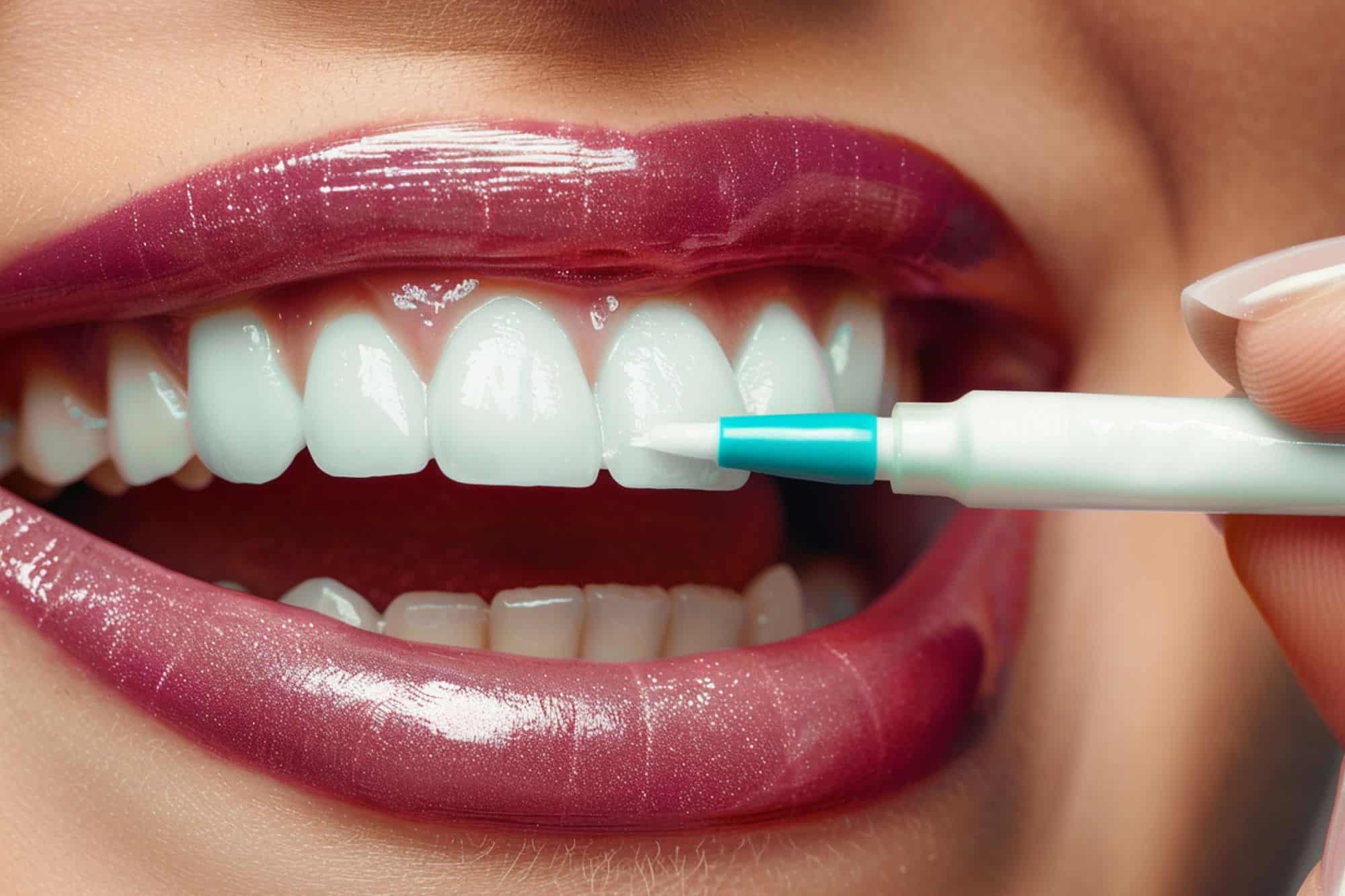Welcome to the world of teeth whitening! If you’re considering a brighter smile with the convenience of a teeth whitening pen, it’s important to understand not just how these tools work, but also how safe they are. In this blog, we’ll dive into everything you need to know about teeth whitening pens, from their ingredients to their effectiveness and safety. Let’s make sure you can smile confidently and safely!
What is a Teeth Whitening Pen?
A teeth whitening pen is a small, portable device designed to improve the appearance of your smile. It looks similar to a regular pen but contains a whitening gel that you apply directly to the surface of your teeth. Using a whitening pen is simple: you twist or click the bottom of the pen to release the gel through a soft brush tip, then paint it onto each tooth. It’s a convenient option for on-the-go whitening, allowing you to touch up your smile anywhere, anytime.
Teeth whitening pens are popular among those who wish to maintain a whiter smile without the commitment to extensive dental procedures in Naperville. They are especially handy for targeting specific areas that may have more noticeable staining. Whether you’re preparing for a big event or just want to keep your teeth looking their best daily, a whitening pen can be a practical addition to your dental care routine.
Active Ingredients in Teeth Whitening Pens
Teeth whitening pens primarily use hydrogen peroxide or carbamide peroxide to achieve their bleaching effect. Hydrogen peroxide is a potent agent that quickly breaks down stains from substances like coffee and wine, brightening teeth effectively. Carbamide peroxide, a gentler alternative, releases hydrogen peroxide slowly, which is beneficial for those with sensitive teeth but may take longer to see results.
While both ingredients are effective at whitening, their concentrations are critical—higher levels can offer more significant results but also increase the risk of sensitivity and irritation.
NOTE
It’s essential to follow usage instructions carefully to safely enjoy the benefits of these whitening agents.
Safety of Teeth Whitening Pens
When considering the safety of teeth whitening pens, it’s important to look at both the short-term and long-term effects they can have on your dental health. Generally, these pens are safe when used as directed. However, the key to safe use lies in following the application guidelines provided by the manufacturer and not overusing the product.
Short-term Effects
In the short term, improper use of teeth whitening pens can lead to gum irritation and increased tooth sensitivity. These side effects are often temporary and can be mitigated by applying the gel carefully to avoid contact with gums and reducing the frequency of use if sensitivity occurs.
Long-term Effects
Long-term safety is also crucial. Overuse of whitening pens can potentially damage tooth enamel, leading to permanent sensitivity and increased vulnerability to cavities. It’s vital to use these products moderately and take breaks between treatments to allow your teeth to recover.
For those with pre-existing dental issues, such as gum disease or significant tooth decay, consulting your Naperville dentist before using teeth whitening pens is advisable. This is to ensure that the whitening process does not exacerbate these conditions.
Potential Side Effects of Teeth Whitening Pens
While teeth whitening pens offer a convenient way to brighten your smile, they come with potential side effects, particularly when not used as intended. The most common issues include:
- Tooth Sensitivity: This is the most frequent complaint, as the bleaching agents can make teeth more sensitive to temperature changes. This usually diminishes after stopping the use of the pen.
- Gum Irritation: If the whitening gel comes into contact with the gums, it can cause inflammation and soreness. Careful application is necessary to prevent this.
- Uneven Whitening: Sometimes, teeth whitening pens can lead to uneven results, especially if the gel is not applied uniformly.
If you experience severe discomfort, it is recommended to discontinue use…
These side effects are typically mild and temporary but can be uncomfortable. If you experience severe discomfort, it is recommended to discontinue use and consult a dentist in Naperville.
Effectiveness of Teeth Whitening Pens
Teeth whitening pens are effective for minor stains and making small cosmetic improvements. However, their effectiveness can vary based on the type of stain and the duration of use. They are particularly good for:
- Surface Stains: Pens are effective at removing stains from the outer layer of the tooth caused by coffee, tea, or smoking.
- Touch-ups: They are excellent for maintaining whiteness after a professional whitening treatment, helping to extend the effects.
However, for deeper stains or more significant discoloration, more robust treatments like professional whitening may be necessary. Whitening pens are best seen as a supplementary tool rather than a complete solution.
Alternatives to Teeth Whitening Pens
For those looking for different options or who may not find whitening pens suitable, there are several alternatives:
- Professional Whitening: Done by a dentist in Naperville, this treatment offers immediate and long-lasting results.
- Whitening Strips: Another at-home option that can provide more uniform results than pens.
- Whitening Toothpaste: Useful for gradual whitening and maintaining dental hygiene.
Each alternative has its own set of benefits and limitations, which should be considered based on your specific dental needs and preferences.
Frequently Asked Questions
Are teeth whitening pens safe for everyday use?
While teeth whitening pens are generally safe, using them every day is not recommended. Daily use can increase the risk of tooth sensitivity and enamel wear over time. It’s best to use these pens for occasional touch-ups or in preparation for special events. For daily maintenance of a white smile, consider gentler methods like whitening toothpaste or mouthwash, which are designed for frequent use and offer milder whitening agents.
How long do the effects of a whitening pen last?
The durability of the whitening effects from a pen depends largely on your oral care routine and dietary habits. Typically, the results can last from a few weeks to a few months. To prolong the effects, avoid foods and beverages that stain teeth, such as coffee, tea, and red wine, and maintain a good oral hygiene routine including regular brushing and flossing. For ongoing maintenance, using the whitening pen for touch-ups every few weeks can help sustain the brightness.
Can teeth whitening pens damage enamel or gums?
Yes, improper use of teeth-whitening pens can lead to enamel damage and gum irritation. This is especially likely if the whitening gel is used excessively or applied too frequently. The active ingredients, while effective at bleaching teeth, can be harsh if they come into contact with gums or are left on the teeth for too long. To minimize these risks, it’s crucial to follow the application instructions carefully, use the pen only as frequently as recommended, and ensure that the gel does not touch the gums. If you experience significant sensitivity or pain, it’s advisable to stop using the pen and consult with a dentist.
Conclusion
Teeth-whitening pens can be a safe and effective tool for enhancing your smile when used properly. They offer a convenient, affordable way to maintain your dental aesthetics, especially between professional treatments. Always consider your specific dental condition and consult with a dentist to choose the best whitening method for you. With the right approach, you can achieve a brighter smile without compromising your dental health.

